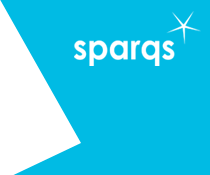In this interview we talk to Gohar Hovhannisyan, International Officer with the Armenian National Students’ Association (ANSA), and a Masters student in insurance at the Armenian State University of Economics. She has been heavily involved in ESPAQ, a European project aiming to develop student engagement in quality in Armenia, of which sparqs has been one of the external partners. She presented on developments in Armenia at sparqs’ conference in Edinburgh on 23rd March 2017, and we met up with her the day before the conference to talk about her experiences of working in quality and the ESPAQ project.
1. Tell us about your studies, and how this led to your interest in student engagement.
My Bachelors was in commerce, and I realised over time that economics was not something I wanted to spend my whole life in. This consciousness promoted to me the idea of exploring education, student engagement and the quality of learning. I realised in a sense that there was a lack of development in student engagement in Armenia and this encouraged me to get involved in student representation.
2. And what has been your role in ESPAQ so far?
I am ANSA’s international officer currently, but also our project manager for ESPAQ. It’s given me lots of chances to do things not only for me, but also, for others.
I got involved in ESPAQ once it had got going, in the second work package which explored what quality means in Armenia. Soon after that, in the third work package, we had training delivered to student experts by sparqs, and I was glad to help as a facilitator, providing assistance to others in communication where their English was not so good.
3. Yes we remember your involvement being really important to our training! Did you find it easy to motivate others around the content of the training?
The reality is very different between the EU and Armenia. Across the EU the structures are usually very well developed, and having been involved for two years in the project now, my perception is that it has developed a lot. However, it has taken a lot of listening to what is going on in Europe in quality and student engagement, and what has happened in Scotland, and studying more deeply the structures and how they have become developed and stable. It takes a lot of time and constant sharing of experience to motivate others through training.
We hope that the exchanges can be a big part of this learning process.
4. Tell us about your experiences of those exchange elements of ESPAQ so far.
We’ve had some simulation exercises already with the other external European partners, and that has shown us a lot about how things have worked in universities. The next stage will involve two exchanges – those from students’ unions in the partner countries going to Armenia in April, and then later, in May, diverse groups of students, both from the participating Armenian universities and recruited by ANSA, will go to Scotland, Ireland, Lithuania and Poland. We will learn a lot, not just about the structures and legal side of student engagement, but the cultural side and how students are driving it. This will help us create one of the key outputs of the project - the pool of student experts for quality activity.
5. What do you hope can be the legacy of this? What will the impact be of the student expert pool?
We want to recruit student experts in quality, not just for the formal reviews, but also, the more internal level, for instance at the course level, ensuring that students are representative and can draw in lots of views – not their own perspective but the perspective of students they represent.
6. ANSA, and the Armenian National Quality Agency, ANQA, will be crucial to this presumably?
Yes, and also our Ministry of Education and Science. They will be crucial for the legal basis of the framework for student engagement we are creating to underpin all this work. The universities beyond the participating five Armenian universities will be open to sign up to the framework after the completion of the project, and that will create opportunities for sustainability, and to have a chance to spread the work of the student pool. We intend to provide a sustainable team of student experts to foster critical thinking about quality for the future.
.
Thanks to Gohar for being an interviewee. To suggest a future subject for interview, please contact us.
This interview is part of a series of occasional interviews on our website with student engagement practitioners – both staff and students, and from within Scotland’s university and college sector and beyond. The interviews aim to capture the different perspectives that people have on student engagement in the quality of learning.


